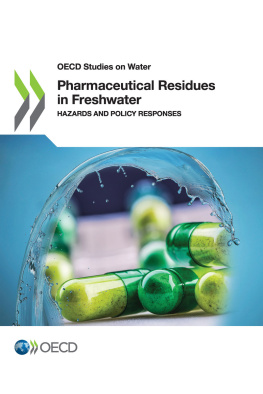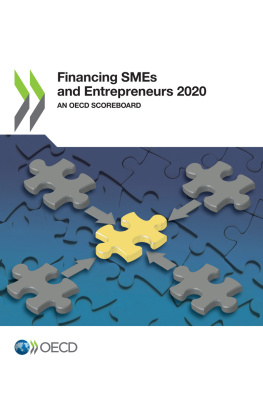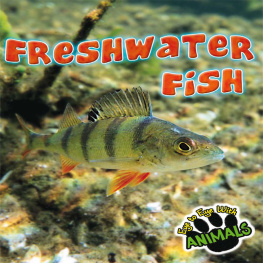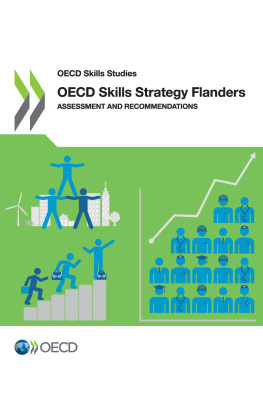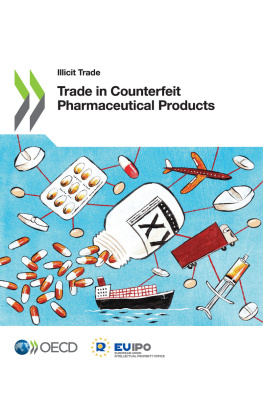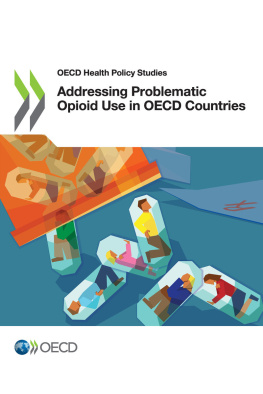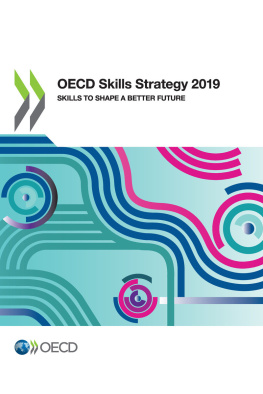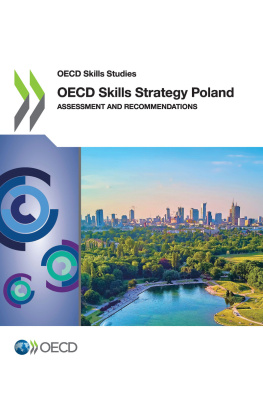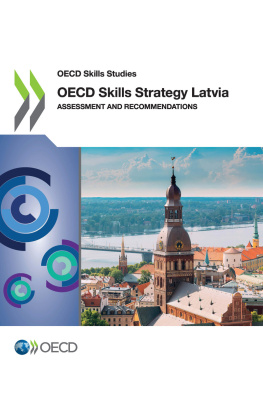OECD - Pharmaceutical Residues in Freshwater
Here you can read online OECD - Pharmaceutical Residues in Freshwater full text of the book (entire story) in english for free. Download pdf and epub, get meaning, cover and reviews about this ebook. year: 2019, publisher: OECD Publishing, genre: Romance novel. Description of the work, (preface) as well as reviews are available. Best literature library LitArk.com created for fans of good reading and offers a wide selection of genres:
Romance novel
Science fiction
Adventure
Detective
Science
History
Home and family
Prose
Art
Politics
Computer
Non-fiction
Religion
Business
Children
Humor
Choose a favorite category and find really read worthwhile books. Enjoy immersion in the world of imagination, feel the emotions of the characters or learn something new for yourself, make an fascinating discovery.
- Book:Pharmaceutical Residues in Freshwater
- Author:
- Publisher:OECD Publishing
- Genre:
- Year:2019
- Rating:5 / 5
- Favourites:Add to favourites
- Your mark:
- 100
- 1
- 2
- 3
- 4
- 5
Pharmaceutical Residues in Freshwater: summary, description and annotation
We offer to read an annotation, description, summary or preface (depends on what the author of the book "Pharmaceutical Residues in Freshwater" wrote himself). If you haven't found the necessary information about the book — write in the comments, we will try to find it.
OECD: author's other books
Who wrote Pharmaceutical Residues in Freshwater? Find out the surname, the name of the author of the book and a list of all author's works by series.
Pharmaceutical Residues in Freshwater — read online for free the complete book (whole text) full work
Below is the text of the book, divided by pages. System saving the place of the last page read, allows you to conveniently read the book "Pharmaceutical Residues in Freshwater" online for free, without having to search again every time where you left off. Put a bookmark, and you can go to the page where you finished reading at any time.
Font size:
Interval:
Bookmark:
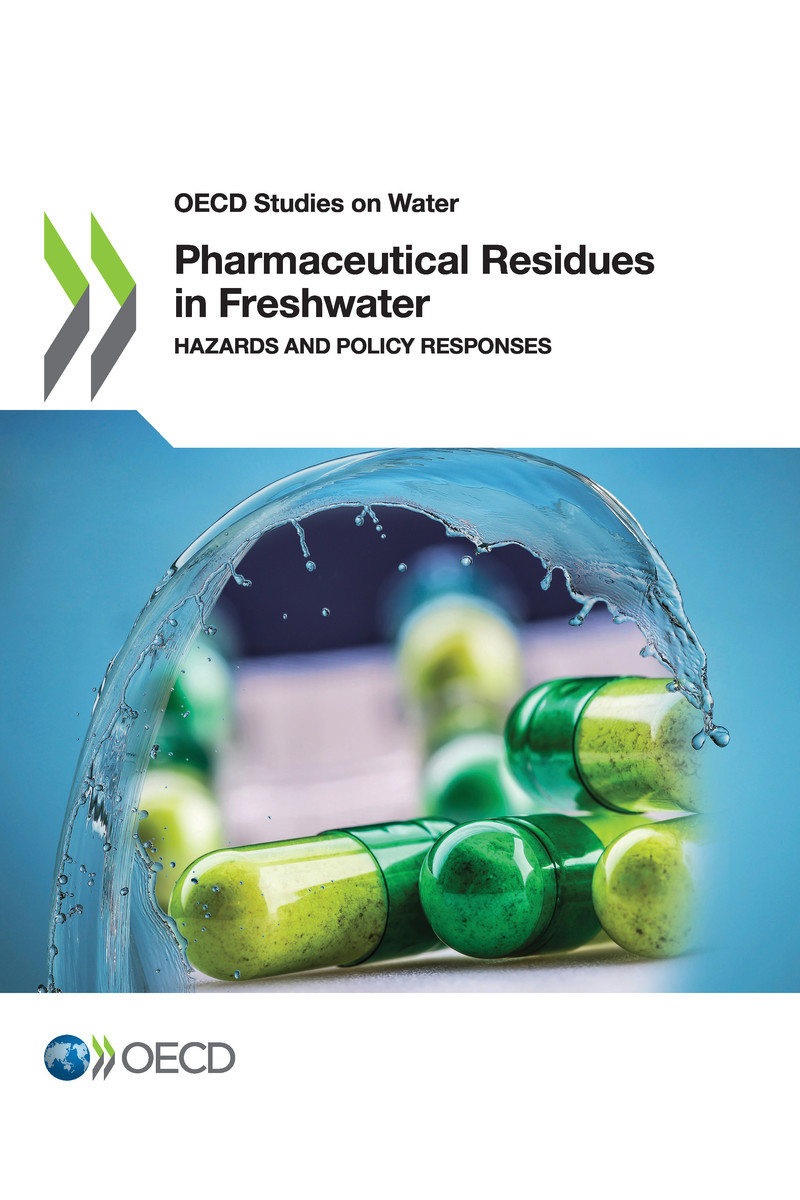
OECD (2019), Pharmaceutical Residues in Freshwater: Hazards and Policy Responses , OECD Studies on Water, OECD Publishing, Paris, https://doi.org/10.1787/c936f42d-en .
Pharmaceuticals are an important element of medical and veterinary practice, and their beneficial effects on human and animal health, food production and economic welfare are widely acknowledged. However, an area where we lack a common understanding is what happens when these pharmaceuticals are constantly discharged into the environment, through pharmaceutical manufacturing, consumption and excretion, and improper disposal of unused or expired products.
Residues of pharmaceuticals, such as hormones, antidepressants and antibiotics, have been detected in surface water and groundwater across the globe. High levels of pharmaceutical residues have been found downstream of pharmaceutical manufacturing plants, and conventional wastewater treatment plants are not designed to remove pharmaceuticals in wastewater. Furthermore, veterinary pharmaceutical residues from agriculture and aquaculture can enter water bodies without any treatment.
Evidence is growing of the negative environmental impacts, with laboratory and field tests showing traces of oral contraceptives causing the feminisation of fish and amphibians, and residues of psychiatric drugs altering fish behaviour. The mis- and over-use of antibiotics is an important contributing factor of the emergence and spread of antimicrobial resistance - a global health crisis with the potential for enormous health, food security and economic consequences.
Unless adequate measures are taken to manage the risks, pharmaceutical residues will increasingly be released into the environment. Ageing populations, advances in healthcare, and intensification of meat and fish production is spurring the demand for pharmaceuticals worldwide. At the same time, the need for clean water will also increase, including treated wastewater for agriculture and high-purity water for manufacturing pharmaceuticals. Climate change is further reducing water availability in sufficient quantity and quality, as well as increasing the risk and spread of disease.
As the challenge of meeting the 2030 sustainable development goals on water and health progresses, emerging issues such as pharmaceuticals in the environment should be prevented from becoming future traditional environmental and human health threats. Health ministers of the G20 have declared to fight antimicrobial resistance. The OECD Council Recommendation on Water calls for Adherents to prevent, reduce and manage all sources of water pollution, in surface and ground waters and related coastal ecosystems, while paying attention to pollutants of emerging concern such pharmaceutical residues. Stakeholders of the Strategic Approach to International Chemicals Management adopted environmentally persistent pharmaceutical pollutants as an emerging policy issue, and agreed international cooperation is crucial to build awareness and promote action on the issue.
Pharmaceutical residues in freshwater is a challenge that must continue to be addressed in ways that take into account advances in our knowledge. This report contributes to this growing imperative. It stresses the need for a better understanding of the effects of pharmaceuticals in the environment, calls for greater international collaboration and accountability distribution, and suggests policy actions to prevent and remedy the problem across the pharmaceutical life cycle. A cross-sectoral response, with economic and regulatory drivers from central government is recommended to incentivise action by pharmaceutical companies, healthcare providers, veterinarians, farmers and food producers, wastewater utilities and the general public. A focus on preventive options, such as disease prevention and improved diagnostics, the sustainable design, manufacture and procurement of pharmaceuticals, and restrictions on the use of pharmaceuticals with high environmental risk, will deliver the most long-term and large-scale environmental benefits.
This timely report brings together the expertise and experience of the health and environment communities. I am confident that policymakers can find both inspiration and pragmatic support in this report, to translate ambition into action on improving health and protecting the environment.

Rodolfo Lacy
OECD Environment Director
This report was prepared by the OECD Environment Directorate, under the leadership of Director Rodolfo Lacy and the subsidiary Climate, Biodiversity and Water Division led by Simon Buckle. The project manager and author of the report is Hannah Leckie. The project was delivered under the supervision of Bob Diderich, Head of the Environment Health and Safety Division, and Xavier Leflaive, Water Team Leader.
The Secretariat gratefully acknowledges the contributions of the delegates of Working Party on Biodiversity, Water and Ecosystems and the Joint Meeting of the Chemical Committee and the Working Party on Chemicals, Pesticides and Biotechnology. The Secretariat is also grateful to the Ministry of Infrastructure and Water Management, Netherlands and the Ministry of Environment, Republic of Korea for their generous financial support in developing this report.
The author expresses gratitude to those who contributed to the preparation and development of this report through the provision of their time, expertise and experience. The report benefitted from insightful discussions and the technical expertise of participants at the OECD Workshop on Managing Contaminants of Emerging Concern in Surface Waters: Scientific developments and cost-effective policy responses held on 5 February 2018, Paris. Special appreciation is extended to: Sara Sahlin (formerly OECD Environment Directorate) who provided valuable research for the development of chapters 1 and 2 of this report; Florence Metz (Department of Political Science, University of Bern, Switzerland) who provided a scoping study and guidance on the development of this project; and Frithjof Laubinger (OECD Environment Directorate) who provided research on pharmaceutical waste management and collection programmes.
Font size:
Interval:
Bookmark:
Similar books «Pharmaceutical Residues in Freshwater»
Look at similar books to Pharmaceutical Residues in Freshwater. We have selected literature similar in name and meaning in the hope of providing readers with more options to find new, interesting, not yet read works.
Discussion, reviews of the book Pharmaceutical Residues in Freshwater and just readers' own opinions. Leave your comments, write what you think about the work, its meaning or the main characters. Specify what exactly you liked and what you didn't like, and why you think so.

